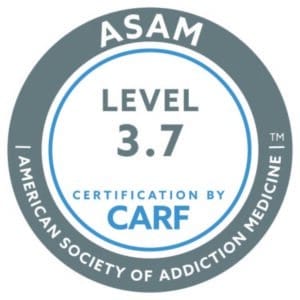Drug addiction is something that touches the lives of many of us. It’s a possibility that someone you know or someone you’re close to has had a brush with substance abuse at some point in their life. Whether in response to a moment of tragedy or because they got in with the wrong crowd, substance use disorders affect millions of Americans every year. So what is life as an addict actually like?
But have you ever sat down and imagined what life as an addict is actually like? The pleasure, the pain, and the constant drive to get more of the drug, whatever the cost — it’s an interesting thought experiment for those of us who’ve never been on the inside of an experience like that, but it can be instructive. Life as an alcohol or drug addict in recovery is often very different from how we might imagine or instantly judge.
Withdrawal From Addiction
The cycle of addiction is a more nuanced process than many people think. When it comes to dependency, there’s a focus on the psychotropic qualities of the substances themselves. Doctors and medical experts will often talk about the THC in cannabis, the nicotine in tobacco, and the cocaine hydrochloride in coca plant extract, implying that these chemical harbingers provoke addiction and that there’s little that people can do to avoid getting hooked if they ingest them.
But anyone with experience of substance abuse disorders, whether directly or through somebody they care about, knows that it rarely happens this way: drug abuse is almost always the consequence of preceding psychic pain. People will turn to drugs when there’s a problem in their emotional lives that they can’t face directly.
This perspective should change how we think about addiction. It’s not so much the result of chemical fallout in the brain from repeated substance use (although this undoubtedly plays a role), but instead a consequence of the prior emotional state of the individual. Addiction arises from a place of pain and is sustained by the false belief that taking dangerous substances offers a solution to life’s cruel hardships including betrayal, abandonment, violence, emotional abuse, bullying, and depression.
The fear of withdrawal, therefore, is not merely about the physical manifestations — the sweating, elevated heart rate, twitching, and so on — but the worry that you’ll have to re-enter that negative mental state you’ve been medicating against in an attempt to avoid. Almost always, facing one’s feelings is more difficult than coming off the drugs themselves. It’s the emotional pain that people fear most.
When discussing withdrawal, medical professionals like to focus on the physical effects since these are the most visible. But many people suffering from addiction avoid coming off drugs because they worry that they will no longer have the assistance they need to continue feeling “normal.” The physical side is scary, but it pales in comparison to the pain of raw, underlying emotions.
Overcoming Negative Stigma
Besides the personal battle with the emotional and biological aspects of addiction, there’s also a social stigma associated with substance abuse. It’s not uncommon for friends and family to make negative assumptions about someone after finding out about their addiction. People close to the drug user may believe (often incorrectly) that they are weak, a thief, a liar, or a deviant who has disengaged with society. But these stereotypes are often not accurate. Stereotypes often make it harder to recover.
The reality of substance users is that they are regular people, just like everyone else. But unlike healthy people who deal with their emotional problems through outlets like therapy, meditation, and counseling, substance abusers are those who have discovered an alternative and destructive way to mask their negative feelings. The problem with stereotyping is that it undermines an addict’s incentive to ask for help when they need it. Substance abusers don’t want to be seen as deviant, immoral, or having “failed” in some fundamental way; they still care about how they are perceived, all of which reduces their incentive to ask for help.

Overcoming the negative stigma of drugs is particularly tricky in our society. Ever since ill-informed public policymakers made it a criminal offense to take drugs in the 20th century, our culture has changed to rationalize the public position. Government officials claim the legal right to use violent force against those who voluntarily take drugs. Arresting and imprisoning them for doing something that is otherwise a personal choice. The justification for this level of violence is that drug abuse has harsh effects on other people in society. The principal victims of any abuse are the people who take drugs themselves.
The problem extends to practically all areas of life. Doctors will often not treat somebody who has a history of drug addiction. Drug addicts are seen as a “lost cause” and treating them is viewed as a waste of resources.
The Shame And Embarrassment Of Drug Addiction
The worst part of living with drug addiction is the drive to hide one’s need for drugs. They see it as a mark of personal failure. Drug addiction is a sign that you are not strong enough to cope with whatever life throws your way; that you do not have the mental fortitude to tackle problems independently; and that you need a chemical crutch to see you through.
These views are destructive for overall happiness and their willingness to get better. Many addicts believe they are a lost cause because society has abandoned them. They also feel people will judge them negatively if they ask for help.
Life As an Addict & The Hurdles Of Withdrawal
We’ve discussed many hurdles of drug addiction. It’s worth going through them one by one to fully understand what a person experiences in life as an addict.
- Fear of not being able to relax.
- People who are addicted to drugs, particularly alcohol, worry that they will never be able to relax – to switch off negative feelings and enjoy the moment.
- Life as an addict without this pleasure can often seem worse than facing the consequences of substance abuse.
- Denial.
- People will often deny that they have a dependence on drugs to avoid the shame and embarrassment of admitting that they need them to function.
- Normalization.
- Many people with substance abuse disorder live in communities of people addicted to the same drugs.
- It’s easier to continue a habit if all your friends are doing it too.
- Fear of future social situations.
- Everybody who uses drugs wants to believe that they do so recreationally: it’s for pleasure, not the relief of pain.
- Going entirely sober means telling friends and acquaintances that you can’t engage in drug use at all.
- Fear of life not being fun.
- It should not be underestimated how much fun drugs can bring while they’re exerting their effect on a person’s biology.
- Worrying about their life will lack the dizzying highs that they get while on drugs and that it will be boring.
The Impact Of An Addicted Parent On The Entire Family
We know that addiction is consuming – not just for the user, but for the entire family. It’s a family affair – not just the business of the addict. The main reason for this is that the entire family does get pulled into the addiction. While they may not be addicts themselves, the addiction will affect every area of the whole family’s lives.
Many experts like to describe this like bog marshlands, or sinking sand. Despite having the best intentions and wanting to help the addict, other family members find themselves getting stuck and sinking down too. The more they pull, the more they’ll get dragged down. And so, it’s essential that loved ones look to keep themselves together first, in order to then support their using family members.
The Impact Of An Addicted Partner On Their Spouse
The effects within a marriage or partnership will very much include many of the emotions, thoughts, and actions that we’ve already mentioned. But because we’re looking at an intimate relationship where trust is critical, and responsibility needs to be had, it can have such a sensitive impact.
For your spouse, it’s difficult to live with an addict. Conflict, shame, anger, and resentment are all emotions that can run high on a constant basis. While the addicted partner is constantly torn between their addiction and showing up in their relationship, the addiction often wins. And the effects can spiral outwards, pushing farther than the spouse.
Getting Help
Life as an addict is very different from how people imagine it. Teachers, parents, and health care providers have crucial roles in educating young people and preventing drug use and opioid addiction. Now that you’ve read this article, you should understand the perspective of the drug user and have a better insight into their experience, both while they are in the throes of addiction, and during their addiction recovery journey.
If you need help, reach out to us today. Whether you need someone to talk with, or need immediate treatment for drugs and alcohol, we’re here for you.
If you or a loved one needs help, call us at 949-625-4019.












